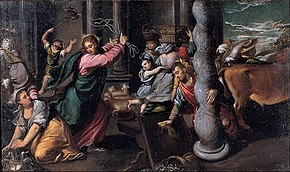Forgiveness. We know we should do it. Christians (and many others) believe God has given it. But what is it? What does it mean to forgive?
Shedding Light on Translations
The Bible uses four Greek words that have various connotations of forgiveness. The one Jesus uses in the Lord’s Prayer (aphesis) is translated in a variety of ways in the New Testament. In the Lord’s Prayer, aphesis is rendered “forgive” and “forgiven,” but almost everywhere else, it is translated, “to leave; to have left.”
Delving into Biblical Words
This Greek word (aphesis) is used to translate its Hebrew equivalent (Yo’bel) that is usually rendered as “Jubilee” in English. It alludes to the Biblical Law that required periodic forgiveness of debt. The Hebrews were commanded to “Consecrate the fiftieth year and proclaim liberty throughout the land to all its inhabitants. It shall be a jubilee for you; each of you is to return to your family property and to your own clan” (Leviticus 25:10). The Year of Jubilee restored personal liberty to those who had become slaves, and full restitution of all property also took place.
Consider this in the light of forgiveness. It’s an action that leads to release, liberty, restitution, and Jubilee. It’s about leaving something behind. We’ll explore this in greater detail later in this blog.
Another picture of “aphesis” in the Hebrew Scriptures is the scapegoat as part of the Day of Atonement (Leviticus 16). By sending away the scapegoat, the Israelites were symbolising the leaving behind of their sins.
What Forgiveness Isn’t
Before we start looking at what forgiveness is, let’s find out what it isn’t. Forgiveness doesn’t mean you will put yourself back into a hurtful situation. Jesus’ teaching on turning the right cheek isn’t about letting someone slap you on the left cheek repeatedly. You’re not called to be a doormat for Jesus.
Over the years, I’ve heard some second-rate teaching on forgiveness. Pastors have told women in an abusive marriage to submit to their husbands, “as the Bible teaches.” It should be remembered that submission in marriage is mutual and conditional. Husbands and wives are to submit to one another (Eph. 5:21). Submission is always based on love: “Husbands, love your wives, just as Christ loved the church and gave himself up for her,” and “husbands ought to love their wives as their own bodies.” No man ever beats himself up, and he shouldn’t abuse his wife either. A woman in an abusive relationship needs to get out as quickly as possible and seek safety. This is not a matter of forgiveness but of self-preservation.
Also, forgiveness isn’t forgetting – only God can do that (Isaiah 43:25). I’ve heard people say, “well, just forgive and forget,” but people don’t have that ability. It’s a Divine prerogative to choose to forget, not a human one.
What Constitutes Forgiveness
Forgiveness is a process rather than an event. Each of us has the choice of when and how we forgive. Don’t be guilty of communicating clichés to others like, “just forgive them,” “move on,” “it’ll be okay.” Real-life cannot be lived by platitudes or formulae.
Forgiveness has to do with release, liberty, restitution and jubilee. In its purest form, forgiveness is about releasing another from your right to get even. It means “to leave, or to have left, your desire to punish someone for their offense against you.” Unforgiveness says, “You hurt me, and I’m going to hurt you back.” Forgiveness says, “You hurt me, but I’m going to release you from vengeance.”
Forgiveness is a choice rather than a feeling. You may still feel hurt, angry, wronged, offended, and wounded. You may feel that way for a long time during which God and time can gradually bring healing and restoration. But these feelings don’t mean you have unforgiveness. If you have relinquished the temptation to get your own back, you have forgiven. When you forgive, you will begin to experience liberty and jubilee.
If you are the one who has hurt or offended someone, then forgiveness for you will be seeking restitution.
Zacchaeus, the crooked chief tax collector, is a beautiful example of this. When he encountered the grace of God through Jesus, Zacchaeus was so impacted that he made restitution with everyone he had offended, “Look, Lord! Here and now I give half of my possessions to the poor, and if I have cheated anybody out of anything, I will pay back four times the amount.” Can you imagine how the forgiveness flowed towards Zacchaeus from people he had ripped off? If he hadn’t responded in this way, he would never have had this experience. People would have known that he was now a follower of Jesus, but they would forever have felt angry with him for the way he stole money from them.
Restitution caused release, liberty and jubilee. True forgiveness will always have that effect.







 Jesus came near
Jesus came near Jesus taught everyone is included
Jesus taught everyone is included

 For example, some words cannot be translated from one language to another because there is no equivalent word. Consider the dilemma for Bible translators in PNG where there is little or no knowledge of sheep. The figures of sheep, lambs, and shepherds figure so prominently in the Bible, so what were the translators to do to remain faithful to God’s Word? Should they translate word for word, making up a new word for sheep (or using the English one) and teaching the people what a lamb is? Or should they find the closest equivalent to sheep in the local culture? They ended up choosing the second option, which meant the words sheep and lamb were translated as “pig” in the PNG Bible.
For example, some words cannot be translated from one language to another because there is no equivalent word. Consider the dilemma for Bible translators in PNG where there is little or no knowledge of sheep. The figures of sheep, lambs, and shepherds figure so prominently in the Bible, so what were the translators to do to remain faithful to God’s Word? Should they translate word for word, making up a new word for sheep (or using the English one) and teaching the people what a lamb is? Or should they find the closest equivalent to sheep in the local culture? They ended up choosing the second option, which meant the words sheep and lamb were translated as “pig” in the PNG Bible. resources. Bible hub has a button for HEBREW (OT) and GREEK (NT), so you can go deeper into words you’d like to get a fuller meaning on. Greek and Hebrew are much more expressive than English, so we lose a lot in translation into our language. For example, four Greek words describe various kinds of love. In English, we have “love.” It’s the same with “Praise,” where there are seven different Hebrew words.
resources. Bible hub has a button for HEBREW (OT) and GREEK (NT), so you can go deeper into words you’d like to get a fuller meaning on. Greek and Hebrew are much more expressive than English, so we lose a lot in translation into our language. For example, four Greek words describe various kinds of love. In English, we have “love.” It’s the same with “Praise,” where there are seven different Hebrew words.


 First, let’s see how this worked in Old Testament times. For example; in Israel’s attack on the city of Jericho, some commandments were suspended. The Levites (priests) who were usually exempt from military duties, led the procession. In other words, the Levites, who were generally bound by a law that prohibited their involvement in battle, were now loosed. Likewise, the people of Israel who were to do no work on the Sabbath marched around Jericho once a day for six days, and then seven times on the Sabbath day. They were loosed from the Sabbath law that usually bound them for the higher purpose of being spared from an enemy that wanted to destroy them.
First, let’s see how this worked in Old Testament times. For example; in Israel’s attack on the city of Jericho, some commandments were suspended. The Levites (priests) who were usually exempt from military duties, led the procession. In other words, the Levites, who were generally bound by a law that prohibited their involvement in battle, were now loosed. Likewise, the people of Israel who were to do no work on the Sabbath marched around Jericho once a day for six days, and then seven times on the Sabbath day. They were loosed from the Sabbath law that usually bound them for the higher purpose of being spared from an enemy that wanted to destroy them. In Matthew 16, Jesus gave the keys of the kingdom of heaven to Peter, thus imbuing him with smicha to lock/unlock (authorise/forbid; bind/loose) in the Church.
In Matthew 16, Jesus gave the keys of the kingdom of heaven to Peter, thus imbuing him with smicha to lock/unlock (authorise/forbid; bind/loose) in the Church.

